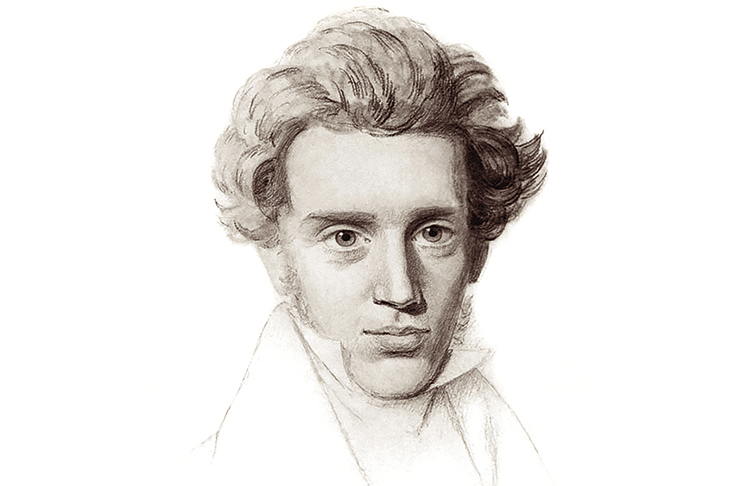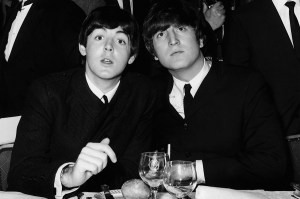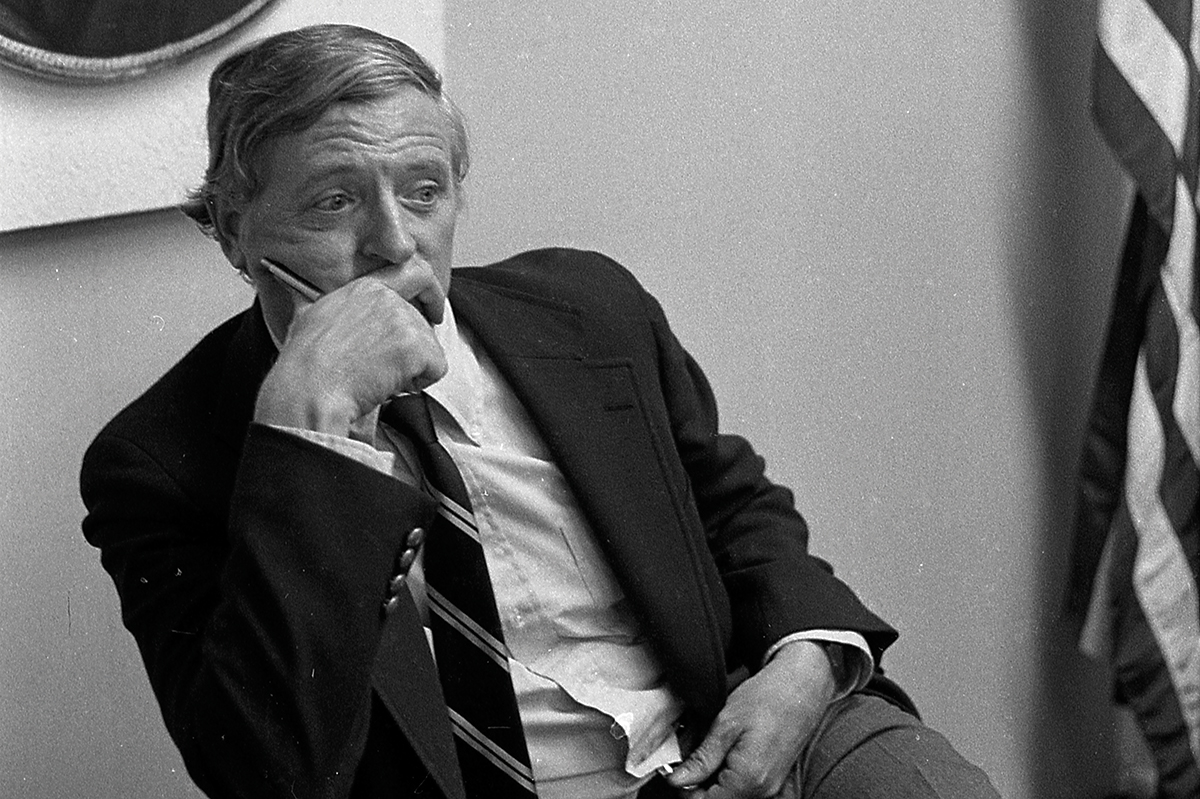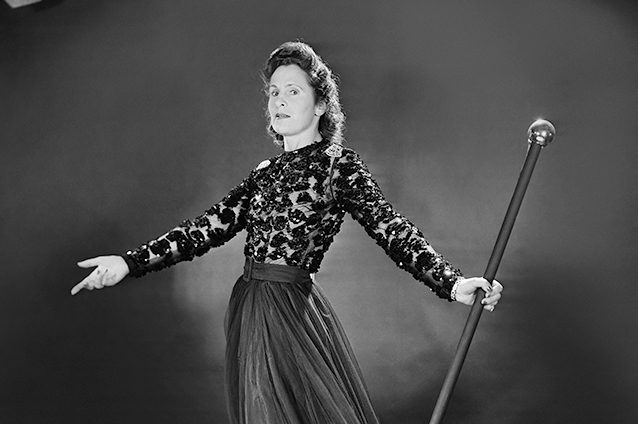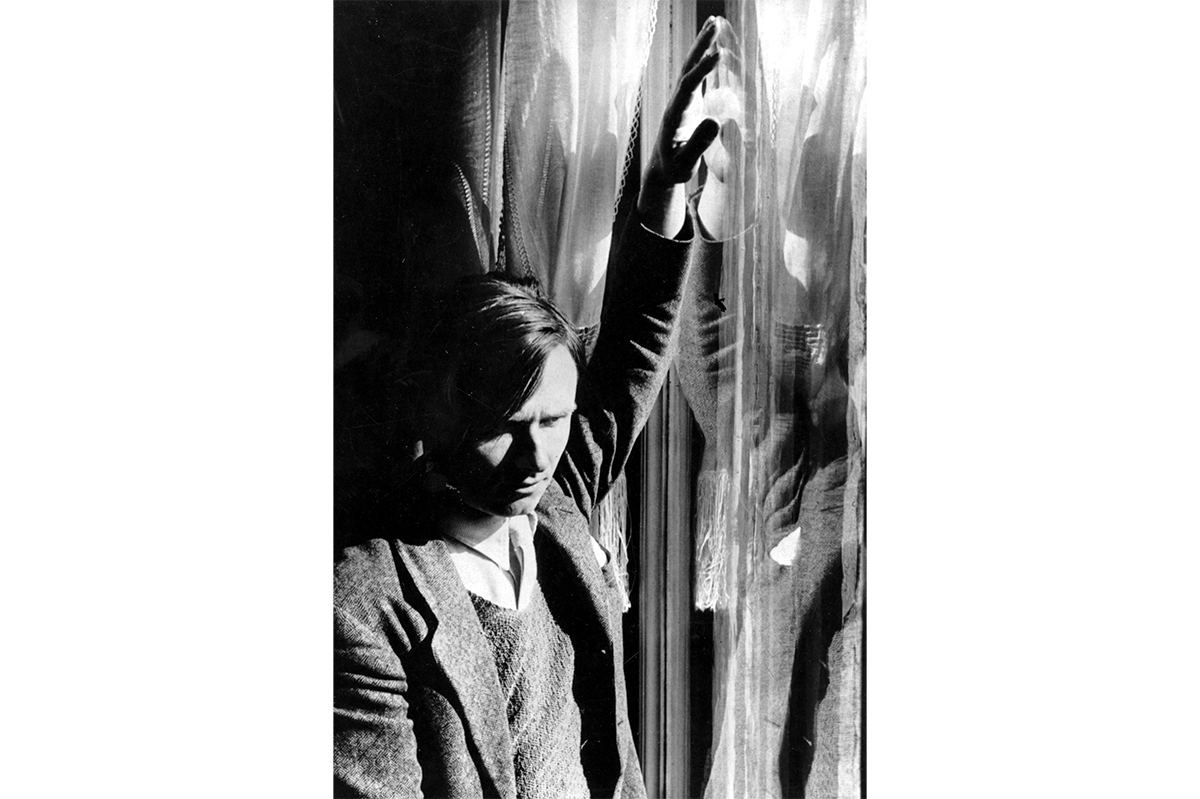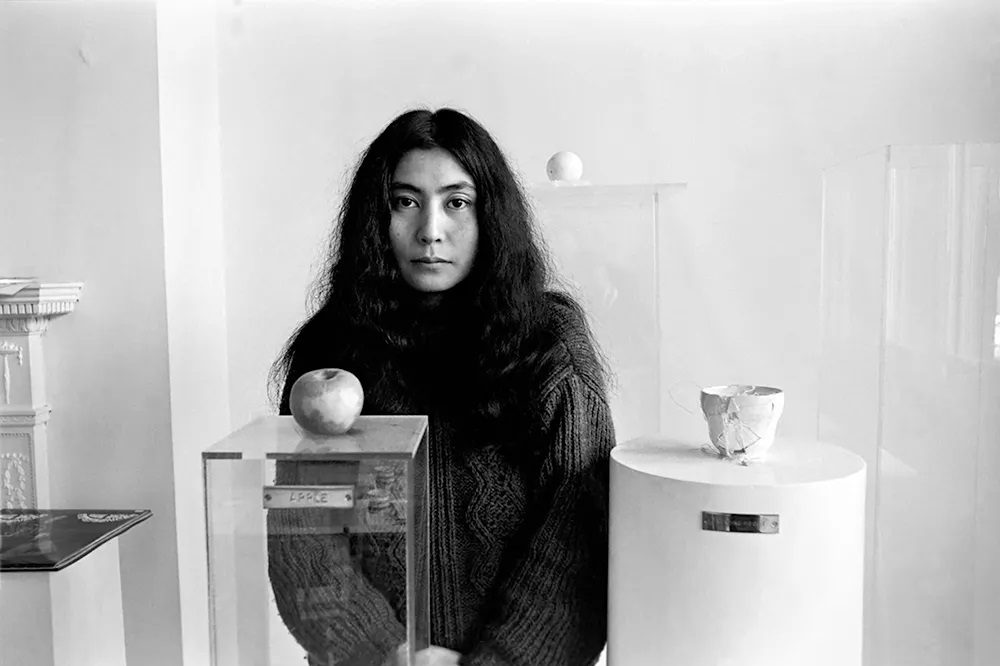Surely God, if He existed, would find a major source of entertainment down the ages in the activities of theologians, reaching their climax perhaps in the 19th century, when they involved Him with German idealism, and then the descent from that to the present day, when the sheer naïveté of anyone who thinks that God is ‘out there’ or actually exists, in some sense we can understand, provokes genial and condescending ridicule from the professionals. Central to the development of thought about Christianity is the work of the melancholy Dane Søren Kierkegaard, who in the course of his short life — he died, aged 42, in 1855 — wrote more books and notebooks than many of us succeed in reading in a longer lifetime.
Most of his books were issued under an assortment of bemusing pseudonyms, Johannes Climacus, for instance. That means that for the non-professional reader it is dangerous to ascribe the views in them to Kierkegaard himself. That is likely to evoke the scorn of the many international scholars working in Copenhagen’s Søren Kierkegaard Research Center — though if Kierkegaard made it to heaven he might finally be forced to laugh with his maker at the thought of such an institution.
That takes us straight to a central feature of his thought: how can you be a Christian in any serious way and not be a member of some organization which bureaucratizes Christ’s message and leads its members, especially its officials, to a denial of the heart of that message? Ignoring such questions as to how far and how long Christ expected his church to survive — the gospels suggest not long — Kierkegaard fails to confront the fundamental issue: isn’t any great civilization or institution bound in the end to be strangled by the bureaucracy which it necessitates?
Instead, self-obsessed and with a uniquely advanced case of moral hypochondria, he analyses every last psychological itch and twitch he has, endowing it with enormous significance, fearing any close human contact because of the risk of one or another kind of spiritual compromise. Hence his notorious engagement to the love of his life, Regine Olsen, which he almost immediately broke off, without explanation, generating enough delectable guilt and anxiety in himself and bewildered agony in her to keep him going to the end of his life. He managed such feats of intricate torment that, despite his chronic poor health, he was enabled to write one book after another, perhaps the most famous during his lifetime being Fear and Trembling, in which he celebrates Abraham for being prepared to slay his son Isaac at God’s command — that is true faith: no questions asked, so indistinguishable from the worship of power.
What is most odd of the many strange aspects of his work was that he accuses the age of ‘lacking passion’, when the only passion he was interested in is that of the individual soul trying to keep up with the inscrutable demands of a Being for whose existence he has no evidence. His perverted version of Christianity was his reaction against Hegel, to whom he devoted his two vast books, Philosophical Fragments and Concluding Unscientific Postscript, where he, or his persona, seems to claim that how one believes is the crucial thing, not what one believes. I see what he means, but I am still exasperated.
Where he comes into his own, for me, is in his prolonged and furious attacks on the Church of Denmark, full of scorn and rage that the smug members of it should mistake their weekly attendance at church and maybe a prayer at night as living the Christian life. He courted unpopularity with immense success and then complained of it.
Clare Carlisle has written a fluent, sometimes devotional book on her hero, in which she begins the account of his life nel mezzo del cammin di sua vita. She of course quotes ‘We understand our lives backwards but live them forwards’ — a remark which has been attributed to many authors, including J.B. Priestley — and is likely to confuse a reader who doesn’t have a basic grasp of Kierkegaard’s life. Only later do we learn of his tormented relationship with his father, where the misery began.
The book’s subtitle is odd: the life of a man who spent almost all of it in tiny Copenhagen, with five visits to Berlin and one to Sweden, can scarcely be described as ‘restless’. What seems remarkable is that at no point does Carlisle feel constrained to criticize, or even to imply criticism, of someone whom I find difficult not to regard as a monster, however painful he may have found life, alternating between his study (always to be maintained by his servant at precisely the same temperature) and his box at the theatre. Sometimes it’s hard to know whether Carlisle is giving her own view or summarizing her hero’s. ‘There are many ways to go to Christ, yet they all converge at one place — the consciousness of sin —and every human being must pass through this place within his own heart’, she writes, and I take it that this is a view she shares with Kierkegaard. To be a Christian must be terribly hard — but so complicated that we require a Research Center?
This article was originally published in The Spectator magazine.



